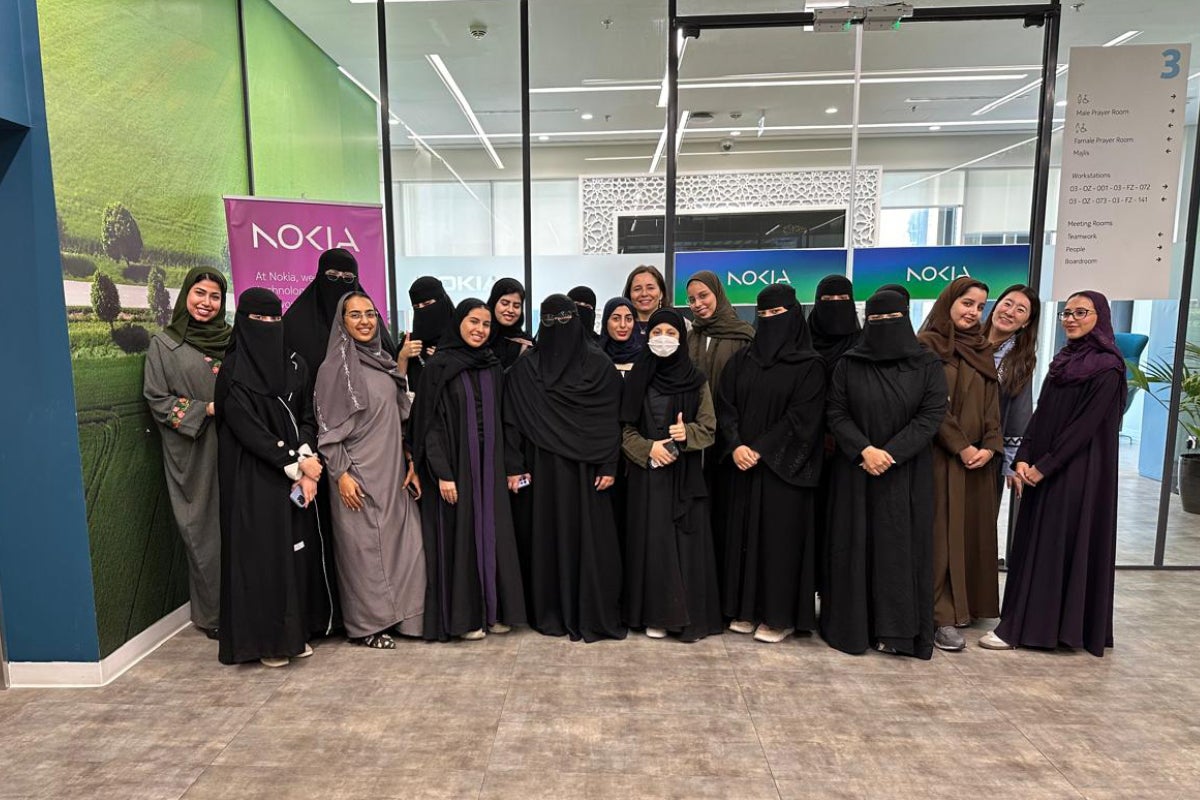UN Women collaborates with Nokia Saudi Arabia in its internship programme increasing women in tech
Date:

For the third year in a row, Nokia in Saudi Arabia is conducting its summer internship programme for 22 women studying STEM degrees and interested to pursue a career in tech. This initiative is under the umbrella of the global UN Women – Nokia partnership and aims ultimately to increase the number of women working in tech roles in Nokia’s KSA office. It was created by Nokia, with technical assistance by UN Women, to address a gap in its workforce.
According to national data, Saudi women’s labour force participation rate has risen from 19.4% in 2015 to 32% in 2020, a remarkable achievement. However, women remain under-represented in the tech sector in Saudi Arabia, despite increasing numbers of women graduating with STEM qualifications. Women in Saudi Arabia comprise 38% of higher education STEM students, well above the global rate of 18%.
The eight-week programme at Nokia runs from July to August and introduces women STEM students and graduates to the practical side of working in the global company’s operations in Saudi Arabia, including site visits and lab work. The programme also supports the women to develop important skills to support them in pursuing employment after completing the course, including soft skills such as job interviewing, presentations and public speaking skills.
On 11 July, UN Women Regional Office for the Arab States provided a full-day session with the participants. In the morning, participants learned about the relevance of gender equality and women’s empowerment to the tech sector. With more women working in tech, there are more opportunities to develop gender-responsive digital solutions to development challenges impacting unequally on women. Examples include the use of block-chain technology to support cash for work initiatives for Syrian refugees in Jordan.
In the afternoon, UN Women led a focus group discussion with the internship participants to gain insights on Saudi women’s motivation to enter the tech sector, and some of the challenges and obstacles they may face. UN Women has identified the STEM economy as a key pillar to increase women’s labour force participation across the region. The findings of the group discussion at Nokia KSA will inform UN Women policy advisory services and programming in the Arab States on this issue.
Participants noted the importance of parental support in encouraging them to pursue what is a relatively new professional field for women in Saudi Arabia, and the inspiration they take from Saudi female role models such as Mishaal Ashemimry, the first female aerospace engineer in the Gulf region. They also noted that government policy of supporting women in STEM is enabling them to be the first generation where significant numbers of Saudi women are able to pursue their dreams of working in tech in their own country.